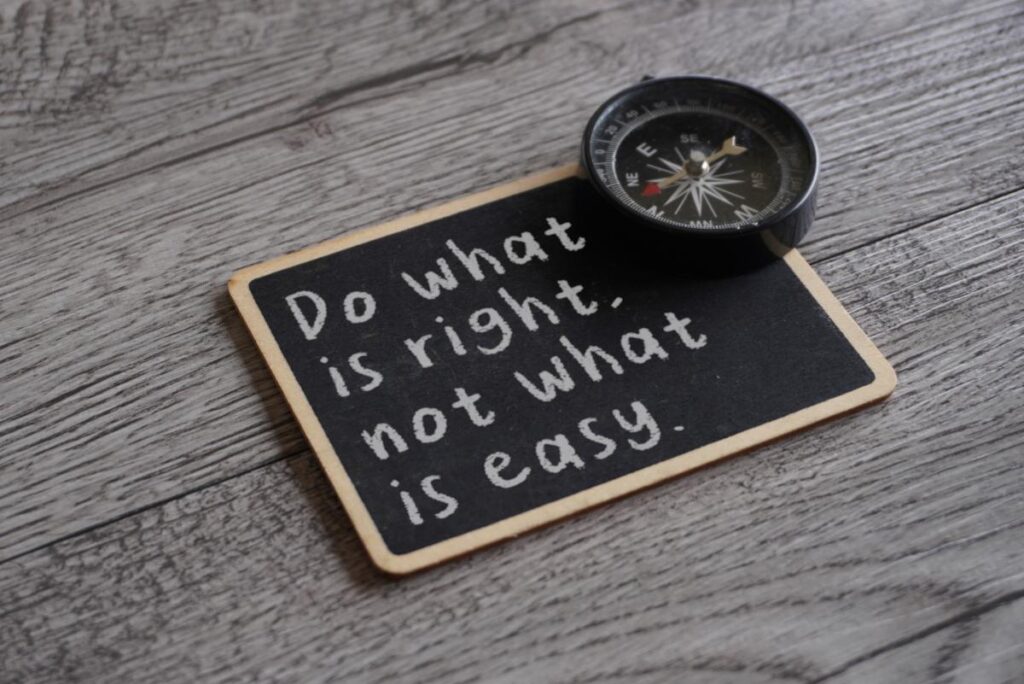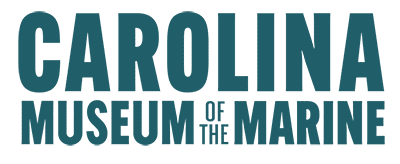Ethics and the Marine Corps

Part of the mission of the Al Gray Marine Leadership Forum at Carolina Museum of the Marine is to make available to the general public the knowledge of how to guide oneself for effectiveness in all domains of life that the Marine Corps has learned over nearly 250 years of service to the United States. Most Americans have not served in the military, and certainly not in the comparatively small Marine Corps, but all Americans, military or not, are human beings having in common the moral and intellectual natures of human beings, and thus the knowledge of human moral and intellectual development acquired by the Marine Corps is available to everyone.
The mission of the Marine Corps requires that individual Marines are disciplined and concerned with improving as human beings as well as Marines. The first of the eleven principles of Marine Corps leadership is this: Know yourself, and seek self-improvement. We may observe that our minds are able to think in a practical way, reasoning from circumstances to decisions on actions that accomplish goals, and when we think in this way, the principle from which thinking proceeds, the first principle of practical reason, is that good should be done and pursued, and evil avoided.[i] When one seeks to know himself, an important good he is pursuing is the good of truth concerning himself, including personal strengths and weaknesses, and when someone seeks self-improvement, he seeks to grow by developing both where he is weak and where he is strong. In other words, growing as a human being is a moral enterprise, and one which the Marine Corps has attended to seriously for a long time. Thus we can learn from the studied experience of the Marine Corps how to proceed in the important effort to become the best person each of us can be.
We have commented here in the past on the assertion of Albert Jay Nock that if one wishes to contribute to the improvement of our society, he should “present it with one improved unit.” He meant of course that we contribute to our society by seeking, each of us, our own self-improvement. A good place to go to think about this is the student handout the Marine Corps has prepared for the course in ethics given to warrant officers going through their basic school.[ii] The study we are considering begins with a few important definitions.
Ethics
“A set of standards or a value system by which free, human actions are ultimately determined as right or wrong, good or evil.”
Morals
“Pertaining to or concerned with right conduct or the distinction between right or wrong. Morality covers the extensive field of personal and social behavior.”
Professional Ethics
“Refers to and deals with additional ideals and practices that grow out of one’s professional privileges and responsibilities. Professional ethics apply to certain groups, e.g., the military, and are an attempt to define situations that otherwise would remain uncertain and to direct the moral consciousness of the members of the profession to its peculiar problems. For example, the military defines situations and prescribes correct behavior for its members in documents such as the Code of Conduct and the Law of Land Warfare.” Of course, this definition of professional ethics is useful in other professions as well.
Following these definitions, the Marine Corps acknowledges the important truth that there are numerous approaches to the study of ethics, and declares, “Here we advocate Virtue Ethics.” The reason for this is given thus: “The Virtue Ethics approach focuses on the character of the person as opposed to specific moral rules or moral actions.” For example, consequentialist moral theories determine the rightness of an act by the consequences it produces. Deontological moral theories, like that of the 18th century German philosopher Immanuel Kant, evaluate the moral quality of an act by its conformity with moral duty, independent of consequences. Notice that in both consequentialist and duty-based moral theories, the focus is on acts being performed and not on the character of the persons performing the acts. Virtue ethics focuses on the character of the person, and this is why the Marine Corps can say as its first principle of leadership that we should know ourselves and seek self-improvement.
There are many virtues which human beings can develop, but in the tradition of virtue ethics there are four cardinal virtues: prudence, justice, courage, and temperance. Having identified the approach to ethics advocated by the Marine Corps, the course observes that the virtues that constitute the core values of the Marines are honor, courage, and commitment. Each of these virtues embraces subsidiary virtues that one expresses when embodying honor, courage, and commitment.
Honor
“The Marine Corps is a unique institution, not just to the military, but to the nation and the world. As the guardians of the standards of excellence for our society, Marines must possess the highest sense of gallantry in serving the United States of America and embody responsibility to duty above self,…” This understanding of honor requires that one embody also integrity, which is rooted in a commitment to the value of human life and dignity; responsibility, which includes owning the results of one’s decisions and actions; honesty, the ground of trustworthiness, or, as is written in the ethics course, “Marines do not lie, cheat, or steal, nor tolerate those who do”; tradition, which includes not only demonstrating respect for the courtesies and customs of Marine Corps tradition, but showing respect for the traditions of others encountered in the line of duty.
Courage
“Moral, mental, and physical strength to resist opposition, face danger, and endure hardship,…” This definition of courage includes such subsidiary virtues as: self-discipline, which includes all areas of life because self-discipline is vital to self-improvement; patriotism, devotion to country and to the defense of the Constitution; loyalty, steadiness and reliability in doing one’s duty; valor, defined as “Boldness and determination in facing danger in battle, and the daily commitment to excellence and honesty in actions small and large.”
Commitment
“The promise or pledge to complete a worthy goal by worthy means which requires identification with that goal and demonstrated actions to support that goal,…” The virtue of commitment includes also competence which, interestingly, is more than technical and tactical proficiency, but the devotion to a standard of excellence in one’s actions; teamwork, which seeks always to support others in accomplishing a team’s mission; selflessness, expressed as placing the welfare of Corps and country above self; concern for people, which we may say is an important element of integrity; spiritual heritage, which is the recognition that we are created by God with inalienable rights to life, liberty, and the pursuit of happiness.
The outline of this course in ethics for warrant officers, and the focus on virtue ethics, demonstrates the Marine Corps’ understanding that good Marines must be good human beings. The understanding that ethics, or the lifelong engagement in growth and development, is the theme running unmistakenly through the western tradition in moral philosophy, and it is a theme running through Marine Corps’ reflection on self-improvement.

i] People may discuss what the words “good” and “evil” mean, but we should not slip into the error of thinking that since people disagree, there are no operative definitions of these words. One basic, and ancient, understanding is that “good” describes those things to which we are naturally drawn, and “evil” describes that from which we are naturally repelled.
[ii] A copy of the handout may be found here: https://www.trngcmd.marines.mil/Portals/207/Docs/TBS/W210001XQ-W310001XQ-W410001DM%20Ethics%20I,%20II%20and%20Combat%20Ethics%20Discussion.pdf


